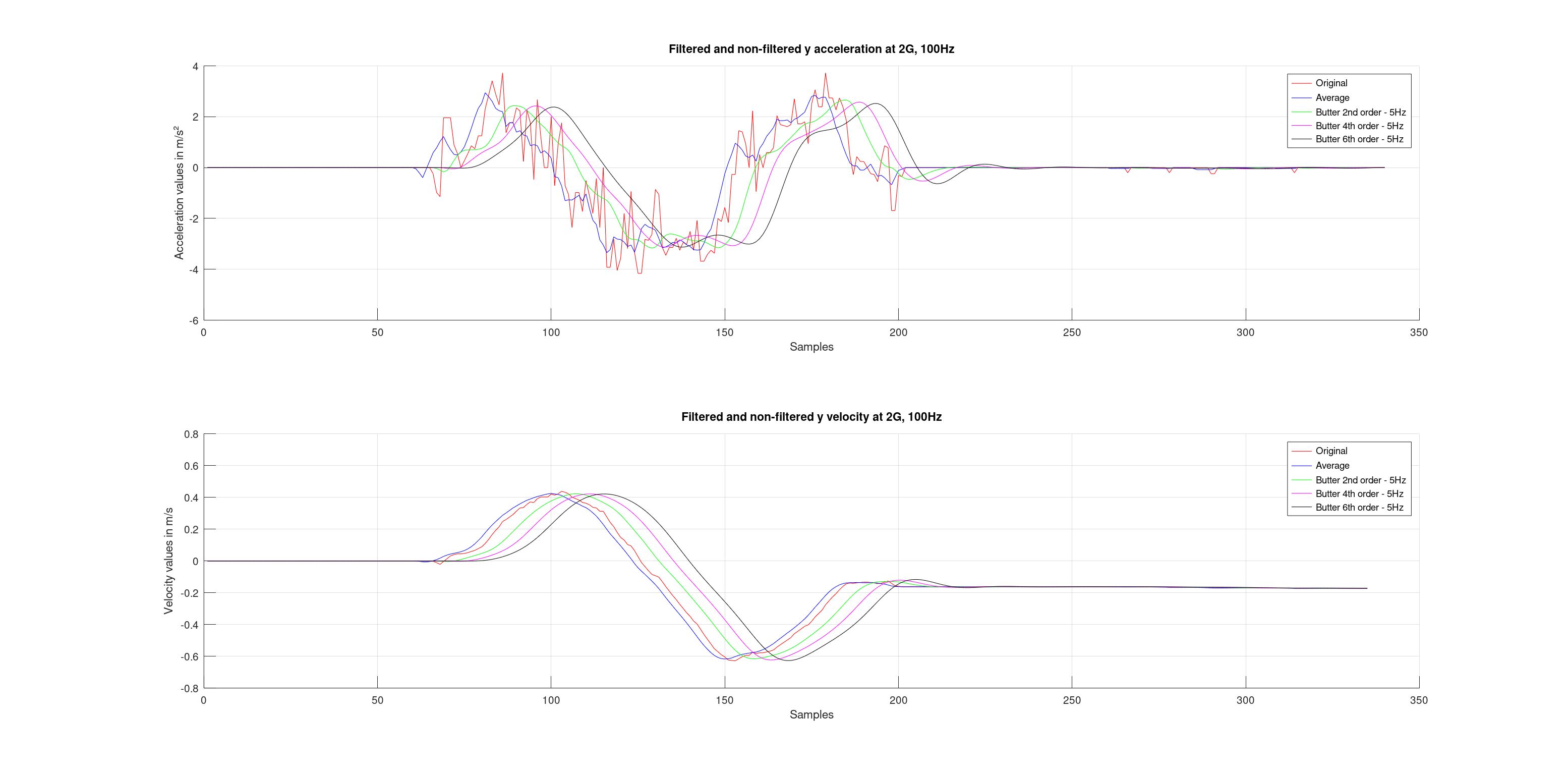I've been working with an accelerometer, and was assigned the job of trying to find the velocity from the accelerometer, I take acceleration data every 10 ms (sampling rate 100KHz) and I used the equation : Vf = V0 + a*t, where t is 10 ms
V0 is 0 at first, and then it takes the old Vf value
I tried moving the accelerometer in Y+ and then Y- direction, using only the y-axis.
And it works okay, see the figure below :
but I recently saw that this equation is designed to be used in an application with a constant acceleration, how come it works for me? Or am I wrong here?

